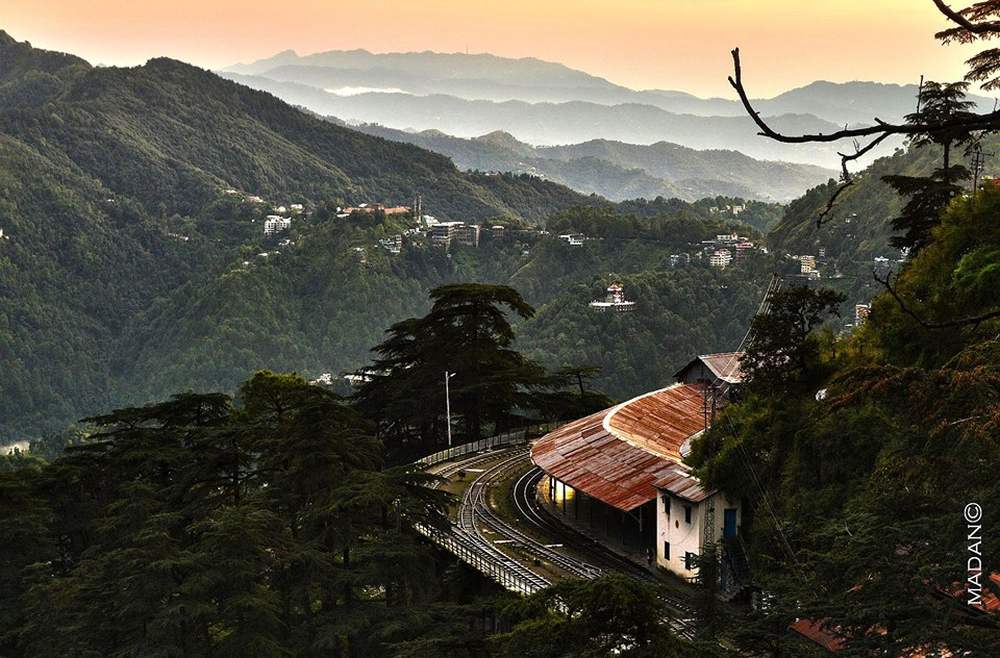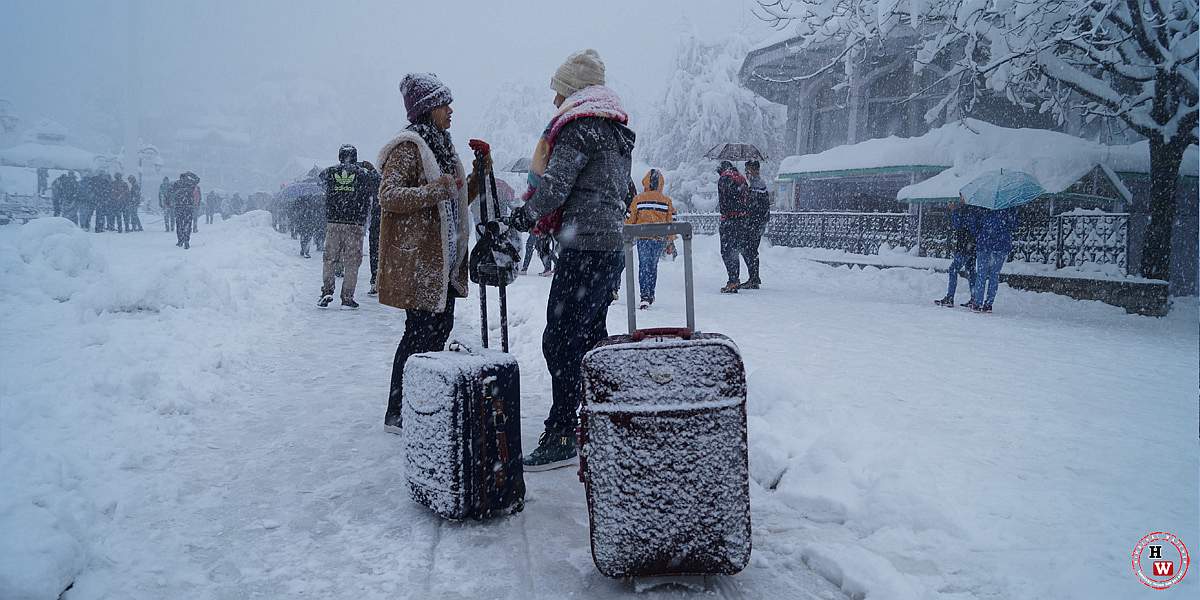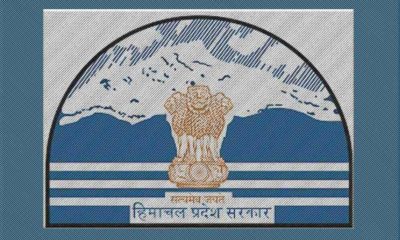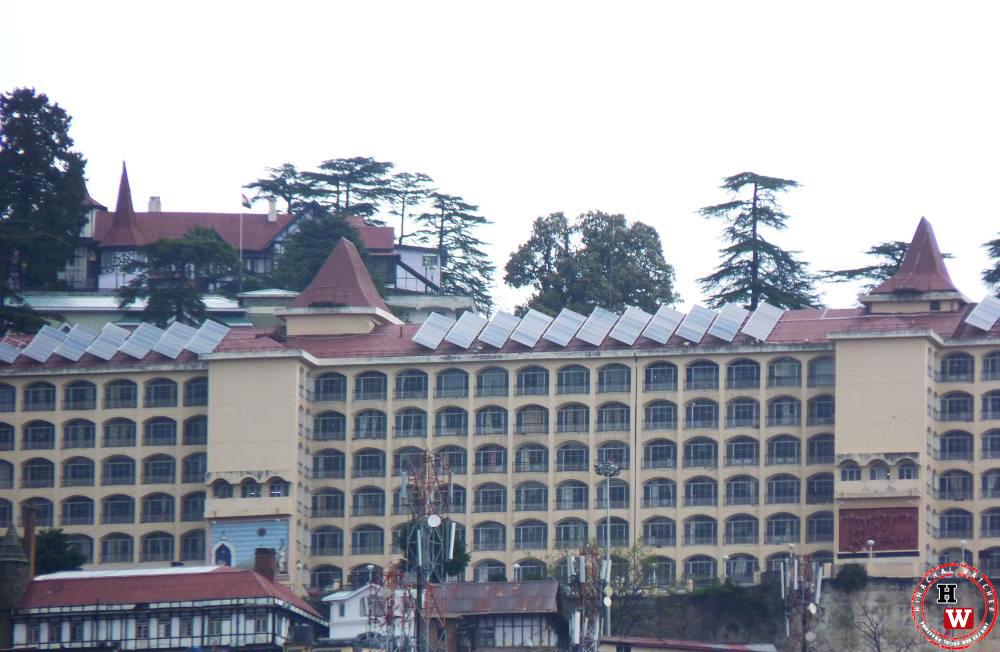ECO-Tourism
Solar lights for all 17 Kalka-Shimla railway stations to save energy

SHIMLA- To save energy consumption, all 17 railway stations on the world heritage Kalka-Shimla rail track will soon have the solar lighting system.
Divisional Railways Manager, Ambala, Dinesh Kumar said the engineering staff was in the process of working out the modalities of introducing the solar lighting system at these 17 railway stations in a phased manner. He said its work would soon be started.
Though no separate budget has been made available for the initiative, funds will be spared from the available budget and the work will be started,
said Dinesh.
The solar power can also be used to light up coaches, helping in saving power and making all stations on the track green in the second phase. It will also help the Railways earn some carbon footprints for reducing the use of energy.
Some public sector companies like the Container Corporation of India are helping the Railways to bear the cost of introducing the solar energy-based system in its stations as part of their corporate social responsibility.
As it is a world heritage rail track, the railway authorities are compelled to retain the track’s ancient architecture, but transformations are not permissible. The introduction of the solar lighting system will help conserve energy consumption.
With the Ministry of Railways laying stress on making the railway stations energy efficient, officials are working out the nitty-gritty of adopting energy efficient technologies.
The stations to be covered under the initiative include Taksal, Ghumman, Koti, Sanwara, Dharampur, Kumarhatti, Barog, Solan, Salogra, Kandaghat, Kanoh, Kathleeghat, Shoghi, Taradevi, Jutogh, Summer Hill and Shimla.
The Ministry of Power is encouraging energy efficient railway stations by awarding them annually. The Allahabad city railway station had received the award in 2014.
ECO-Tourism
Himachal to Set up 100 Swachhta Cafés Worth Rs. 10 Crore to Promote Traditional Cuisine, Collect Tonnes of Single-Use Plastic

Shimla-Swachhta cafe would be set up in Himachal Pradesh with an estimated cost of around Rs. 10 crores by the year 2023. The State Government would set up around 100 such cafes. Ten such “Swachhta Café” would be set up at important locations of the state with an estimated cost of rupees one crore with a target to collect 25 tonnes of single-use plastic items from different parts of the state by end of this financial year.
It was informed by Rural Development and Panchayati Raj Minister Virender Kanwar recently.
Under this “Swachta Café” program, plastic waste will be purchased from the ragpickers, individuals collecting waste from households and urban local bodies at Rs. 75 per kilogram in exchange for food or other eatable items to motivate the ragpickers and individuals to keep their surroundings clean.
The Swachhta cafe will be constructed under “Village Haat Scheme” where women will be facilitated to sell medicinal plants, such as giloye, peppermint, powder of neem leaves and homemade pickles, murabba, wheat flour, pulses, spices and vegetable vat reasonable prices.
The women running the Swachhta Cafe will be given training in the hospitality sector to enable them to cook popular traditional cuisine to maintain original flavour and taste of the dishes. Around 100 such women will be trained by the hospitality experts during the current financial year, he informed.
He further informed that a target has been fixed to train around five thousand women belonging to self-help groups in the next three years in the hospitality sector to run these cafes.
The first Swachhta Café was inaugurated at Gram Panchayat Radiali in Nalagarh area in Solan, which is to be run by women self-help groups and another cafe would be opened at Naggar in Kullu Districts. Under the scheme, if a person brings more plastic waste then he can use the surplus money for dining in next time in the cafe.
Minister said that the programme aims that villages are made completely free of single-use plastic in coming years and the entire state will be covered under the scheme in a phased manner in coming years.
ECO-Tourism
HP Tourism to Cook 1100 kg ‘Khichari’ at Tattapani to Promote Tourism

Shimla-Himachal Pradesh Tourism Department will organise ‘Tourism Festival’ on the occasion of Makar Sakranti on January 14, 2020, at Tattapani. It would be organised in collaboration with district Mandi Administration. This was disclosed by Director Tourism Department Yunus while presiding a meeting today.
He said that the objective of organizing this tourism festival is to promote Tattapani as a tourist destination. He said that for first-time tourism festival was being organised at Tattapani to make it tourism destination for Indian and Foreign tourists.
He informed that during this event, Water Sports, Satluj Aarti and cultural programmes would also be organised. On this occasion, 1100 kilogram’ Khichari’ would also be cooked and it would be especially cooked in a single utensil, he added.
This is for the first time in Himachal Pradesh that Khichari would be cooked in such large quantity and will be served to about 12,000 to 15,000 people. Special buses would also be plied by the Transport Department to reach Tattapani Tourism Festival from Mandi and Shimla on Makar Sakranti.
SDM Karsog, District Tourism Officer Mandi, representatives of NTPC, HPTDC, Language, Art and Culture Department and Tattapani Panchayat participated in the meeting among others.
ECO-Tourism
ADB funds Rs. 1900 crore tourism project for Himachal

The design of the project is based on the detailed baseline data, a study conducted of 324 sites in 12 districts of the state, suggestions obtained from about 90,000 tourists.
Shimla: The Department of Economic Affairs, Ministry of Finance, Government of India has approved a tourism infrastructure development project worth about Rs. 1900 crores to be funded by the Asian Development Bank (ADB) for development of tourism infrastructure in the urban and rural areas of Himachal Pradesh.
With the help of this ADB funded project, the state would develop tourism in rural, unexplored areas and improve the infrastructure of the towns and also generate employment for the local youths and showcase Himachal as the best natural tourist destination state, the State Government informed.
Additional Chief Secretary, Tourism Ram Subhag Singh further informed the project would be completed in eight years.
The project is supposed to focus on diversification of tourism to new and rural areas by developing tourism infrastructure, create livelihood and employment opportunities through rural, adventure and ecotourism.
The project also mentions the application of innovative models like incentive-based mechanisms for community-based tourism activities, augmentation of services like water supply, sewerage, solid waste, skill development related to the tourism sector, advertising and marketing etc.
He claimed it would be one of the finest examples of sustainable tourism in the Himalayan States.
The project will have both hard and soft components and will include beautification of towns, development of unexplored areas, conservation and restoration of heritage buildings, infrastructure development in adventure, eco, rural tourism with an emphasis on community participation and employment generation.
The design of the project is based on the detailed baseline data, a study conducted of 324 sites in 12 districts of the state and suggestions obtained from about 90,000 tourists and designed in line with sustainable tourism guideline for the Himalayan States.
The Union Ministry of Tourism, Union Ministry of Housing and Urban affairs and Niti Ayog have also supported the project for tourism development in Himachal, it was informed. 
The Government said the Department of Economic Affairs was satisfied with the performance and progress of the State on the ongoing ADB funded project of about Rs.600 crores.













 Home Decor Ideas 2020
Home Decor Ideas 2020
